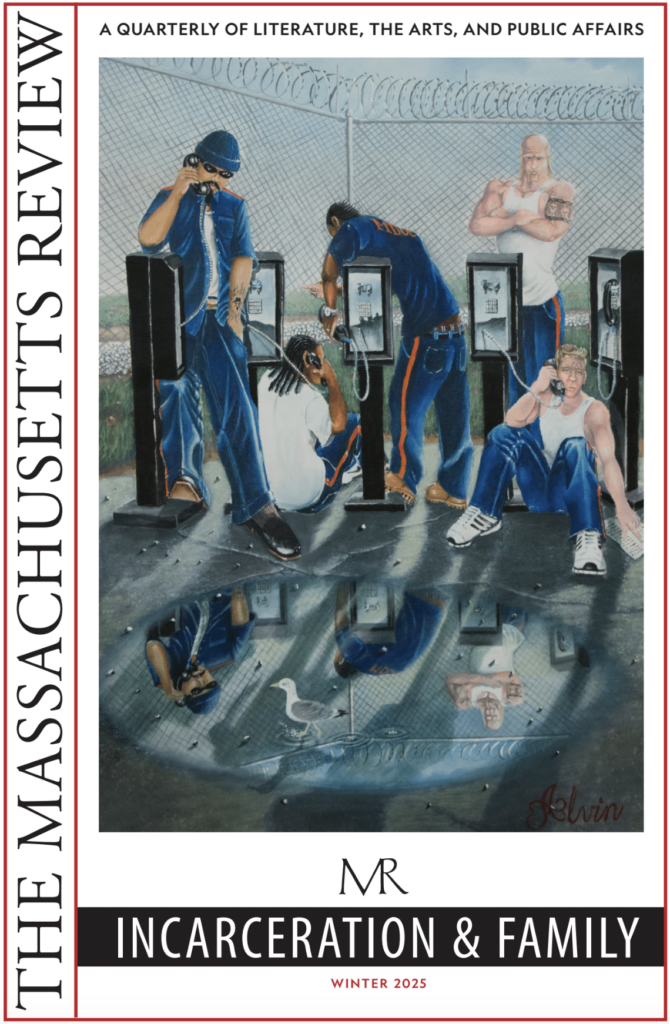10 Questions for Brian Russell
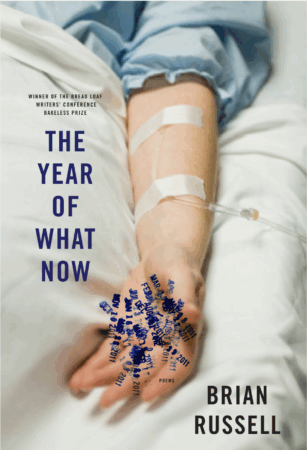
some dusks I linger long enough
to watch bats stream from the eaves of my neighbor’s house
like blood starved of
oxygen I could cut my own
umbilical cord to the world to watch the
indigo sky leak out and believe I was the
source. I’m sorry. I’m sorry
—from Brian Russell’s “Missouri,” Vol 66, issue 3 (Fall 2025)
Tell us about one of the first pieces you wrote.
I wrote my first poem on hotel stationary near Lake Arrowhead, California, age 8 or 9 probably. The poem itself is long-gone (for the best), but a couple lines have stuck with me: “Upon the rocks is where I sit / The only light is what the moon has lit.” Unintentional, surely, but I sort of appreciate the twisted logic of the light being lit by itself. I don’t know where the words came from or why I felt compelled to write them down, but I never looked back.
What writer(s) or works have influenced the way you write now?
Always, there’s past and present. I was lucky enough to take a class with Claudia Rankine my first year at the Univ. of Houston. She changed everything: the way I read poetry, write it, think about its limits and possibilities, about its place in my life and my place in the world. Currently, the writers I find myself most in conversation with, figuratively speaking, are: Carl Phillips, Diane Suess, and Robyn Schiff. Many others I could name but, at the moment, they seem best able to unlock the secret door in my brain where my own poetry hides.
What did you want to be when you were young?
I truly can’t remember ever thinking about it. My kids periodically ask me if I became what I wanted to be, which always makes me laugh so hard I cry and can’t breathe. What I wish for you is that a child never asks you that question. For better (low anxiety) or worse (awful at planning), the future doesn’t occupy my mind all that much. Where do I see myself in five years? I can’t picture it.
What inspired you to write this piece?
“Missouri” is part of a series of poems in my second collection (available for publication!), that lyrically travel Route 66 from Chicago to LA. When I lived in Chicago, my office window looked out at the beginning of Route 66. My house in St. Louis is just off Route 66. The Mother Road has followed me (or me it?) as a thematic curiosity for much of my adult life. More and more I came to see Route 66 as a perfect backdrop for thinking about personal reckoning and inheritance.
Is there a city or place, real or imagined, that influences your writing?
Only recently I’ve come to realize all my writing is rooted in place. My first book, The Year of What Now, is as much about the world of the hospital as it is about the relationship it follows. It is based on the experience of my own family members, and I saw firsthand the way chronic illness shrinks one’s world down to the size of pain. Anyone who has spent extended time in the hospital knows it’s its own world with its own circadian rhythms.
My second collection, Stardust Inn, is even more explicitly concerned with how our immediate environments, in all senses, shape our ideas of ourselves and the world.
Is there any specific music that aids you through the writing or editing process?
I do have a Spotify playlist called Sad Songs for Sad Poems but I haven’t listened to it in a long time. I listen to music almost constantly but it has never been a consistent part of my writing process.
Who typically gets the first read of your work?
Over the years I’ve gotten out of the good habit of sharing my work regularly. I think part of me feels like it’s a burden to ask of people whom I know have little time for themselves. I try to use time as my best editor. After I write something, I won’t look at it again for usually a month or more. Funny how often the poem I remember being so good seems much less so when revisited.
If you could work in another art form what would it be?
I’ve always wanted to be the lead singer in a band. Even though I’m 42 years old, I’m not giving up hope. I was once awarded a gold medal for karaoke on a Carnival cruise ship. During the day, people would come up to ask me what I was going to sing that night. I’ve never lost that taste for fame lol.
Do you have any rituals or traditions that you do in order to write?
My attempts to ritualize my writing process have always failed. I tried waking up early to write but I’m not a morning person, so that felt more like punishment than production. Between my job and my two kids whose hockey and soccer teams I coach, writing is often the last Tetris piece I have to fit in. My goal is to write one poem per week which I’m proud to say I’m able to manage. Some weeks I might even write TWO poems!
Because I don’t usually have more than a couple hours a week to devote to writing I have to have ready-made ways to start and finish poems. I have a couple simple forms I made up that’ll I use sometimes. For the past three years, I’ve been starting mostly with acrostics. “Missouri” is an example. Each section is a city or town Route 66 passes through. More recently, I’ve been using the form as starting point which disappears during editing.
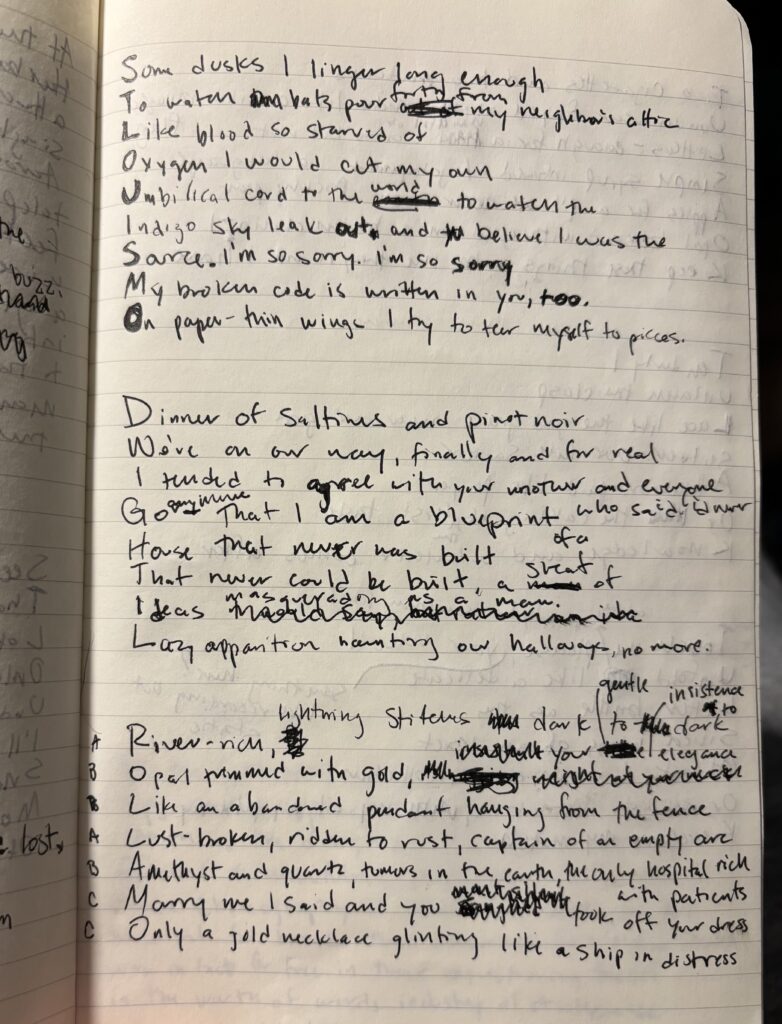

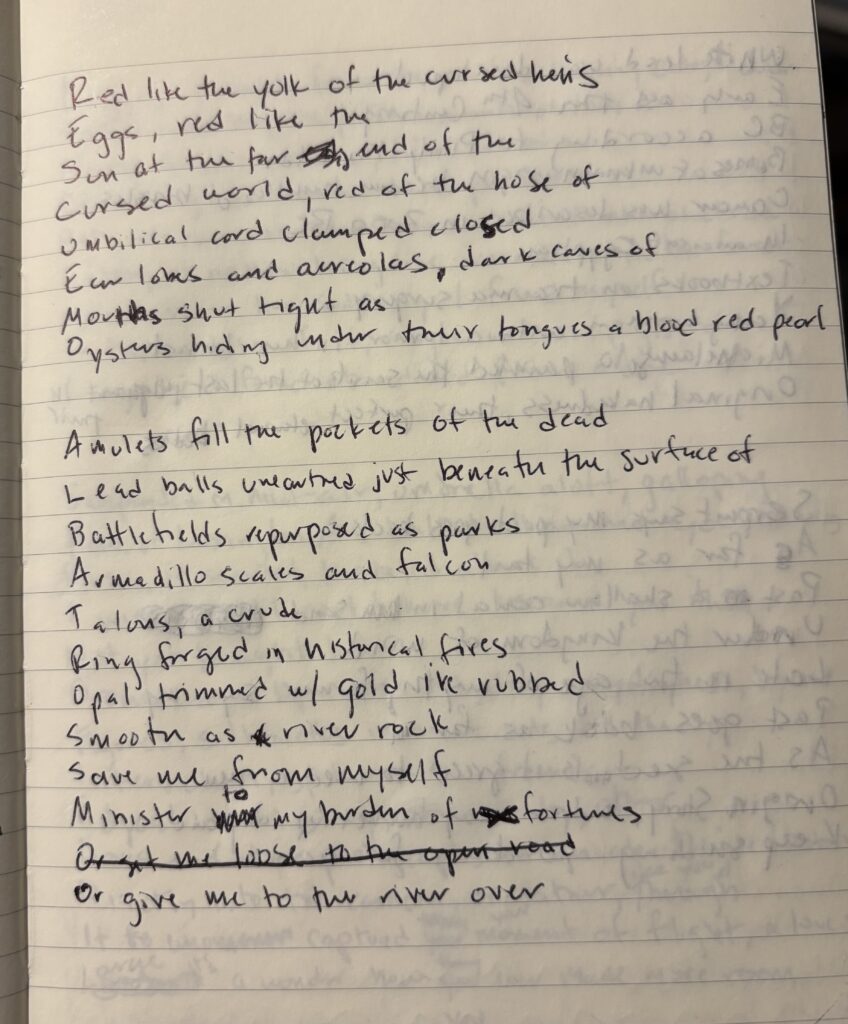
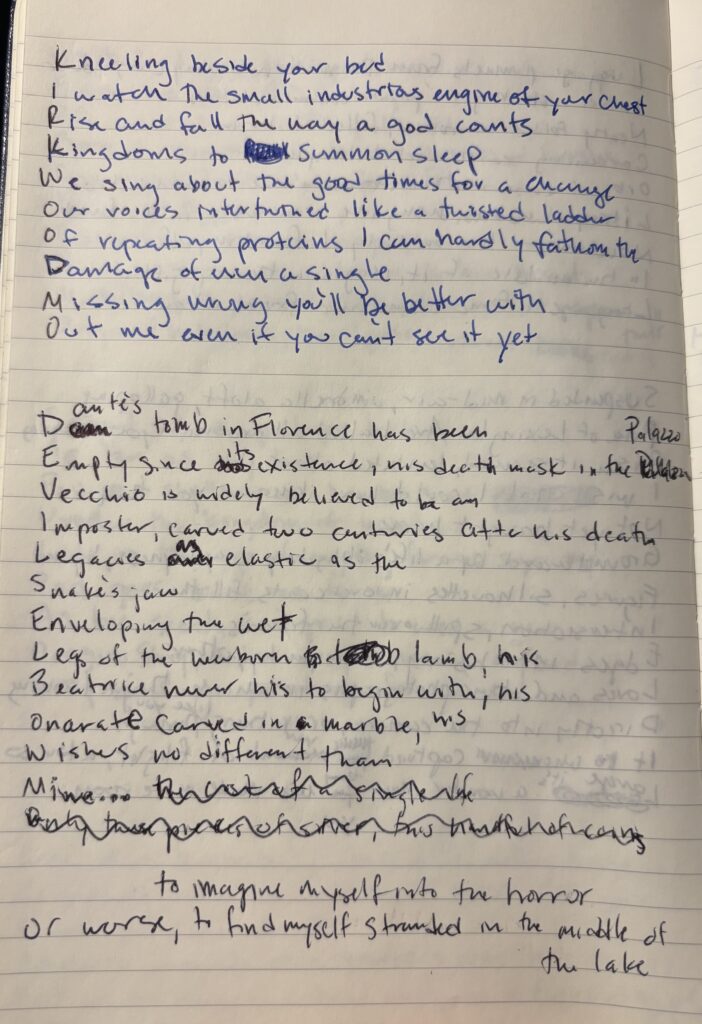
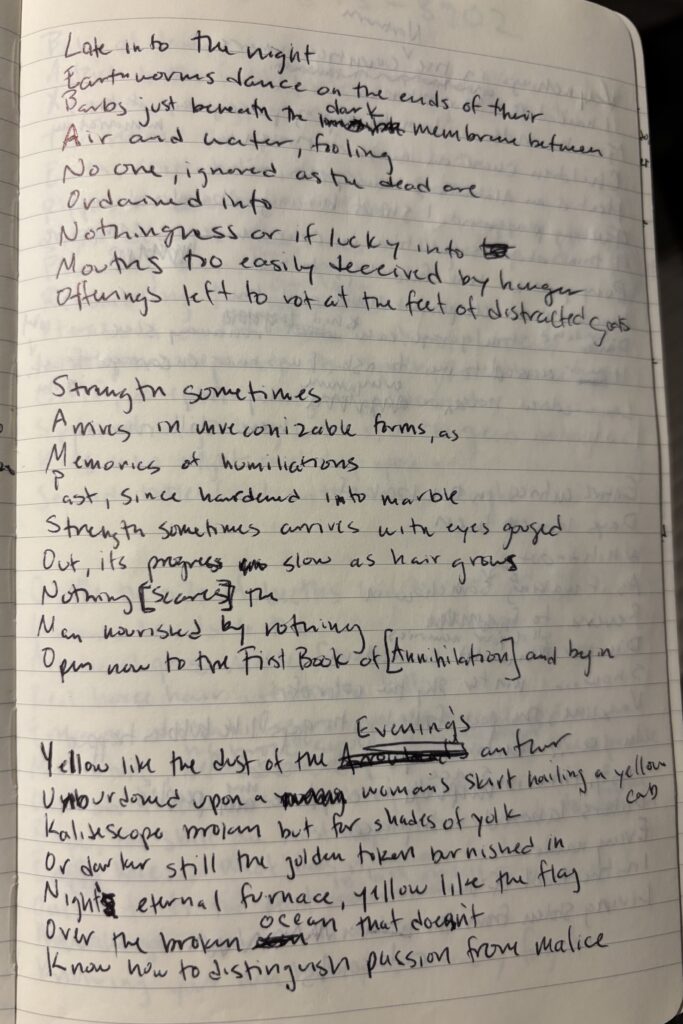
I’ve also tried keeping a dedicated notebook for ideas, lines, poems, etc. That, too, didn’t last long. Most of the first drafts of the poems I’m writing these days can be found in the white spaces of the books I’m reading.
What are you reading right now?
Sayaka Murata’s Earthlings, which I’ve been recommending to everyone I know. I’m in awe of the way she writes—her ability to render strange and unfamiliar our shared world. She has an uncanny ability to see through the elaborate movie set of society.
BRIAN RUSSELL is the author of The Year of What Now (Graywolf, 2013), which was named a finalist for the Levis Reading Prize. His poems appear in The New Yorker, The New Republic, and Kenyon Review. He lives in St. Louis.



